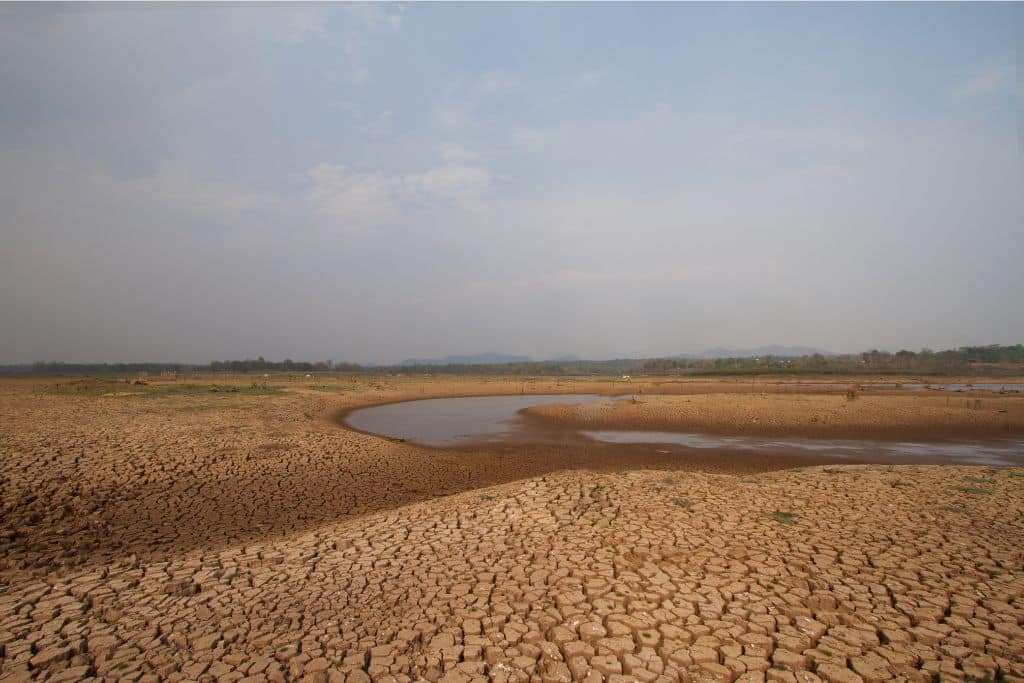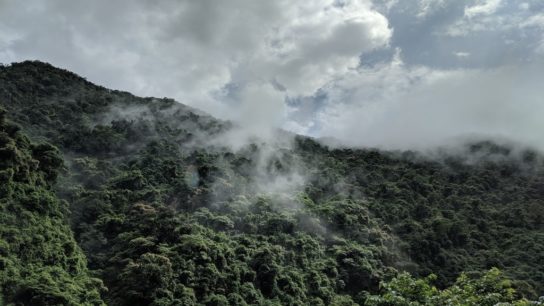Water scarcity is a growing crisis affecting many parts of the world. According to the United Nations, over 40% of the global population currently experiences water shortages, and this figure is expected to grow in the coming years. To make matters worse, less than 3% of the world’s water supply is freshwater suitable and accessible for human use. Sustainable access to water will be one of the defining issues of our time and it is a problem we need to tackle now. Whether through innovations in policy, technology, or individual actions, reducing water waste and using water more efficiently must become priorities around the globe. Here, we explore the importance of water conservation and highlight the significant impact of water scarcity, should we fail to take action.
—
Water Scarcity Is a Global Issue
The United Nations Educational, Scientific and Cultural Organization (UNESCO) estimates that 2 billion people do not have access to safe drinking water and 3.6 billion lack access to safely-managed sanitation. Parts of the Middle East and Northern Africa are already experiencing severe water stress, with populations far exceeding the availability of resources. Many experts predict that half the global population could face water shortages by 2025 if we fail to curb our consumption and waste.
Some countries will be hit harder by this problem than others. Parts of India and Asia are already facing extreme water scarcity, with some groundwater supplies depleted entirely, and many African countries also struggle with a lack of clean water infrastructure and availability. As the climate crisis worsens, countries in these areas will face even more hardship than they’re currently struggling with.
Water shortages can result in the spread of diseases, poor sanitation, a rise in food shortages and have a devastating impact on agriculture, to name just a few. Water inequality also exacerbates global poverty as populations without access to clean water struggle to improve their living standards without this essential resource.
You might also like: 4 Countries with Water Scarcity in 2023
5 Impacts of Water Scarcity
1. Health and Sanitation
The impacts of water scarcity are far-reaching and damaging. A lack of clean water and proper sanitation facilities spreads diseases, with millions of deaths each year linked to contaminated water sources.
2. Food Production and Agriculture
Water scarcity also severely impacts food production and agriculture. Much of the world’s freshwater is used for crop irrigation, and water shortages translate directly to food shortages. Naturally, this will have widespread consequences for future generations.
3. Migrations and Conflicts
Mass human migrations and conflicts are also consequences of severe water scarcity. Water stresses can displace populations and lead to refugee crises as people move to find more liveable conditions. Water disputes also continue to increase tensions between countries that share water resources like rivers or aquifers. Several experts suggest that future wars may well be fought over access to water rather than oil.
4. Environmental Changes
Water scarcity also has irreversible impacts on the environment. In the future, we could see an increased loss of biodiversity, deforestation and desertification from water shortages. Freshwater ecosystems provide habitats for numerous plant and animal species, but many wetlands and rivers are drying up or becoming polluted.
5. Climate Change
Deforestation also reduces access to clean water which creates a vicious cycle where water scarcity intensifies the long term effects of climate change. Experts agree that action must be taken to protect watersheds and freshwater ecosystems before we lose irreplaceable habitats and their inhabitants. Tackling this issue is critical to achieving equal and sustainable development for all. The world must take collective action to manage and share our limited freshwater resources before water stress becomes a catastrophic global crisis.
More on the topic: Causes and Effects of Water Shortages
What Can We Do to Preserve Water Sources?
1. Home Water Conservation
There are many steps individuals and communities can take to use water more sustainably and reduce waste. Simple actions like taking shorter showers, turning off the tap while brushing your teeth or washing dishes, and only running full loads in the washing machine can save thousands of litres of water per household each week. Fixing leaky taps or pipes is also important, as even small drips can waste many gallons of water annually if left unfixed.
2. Landscaping and Gardening Choices
Outside the home, replacing manicured lawns and gardens with native plants and succulents can significantly reduce water needs. Where lawns are necessary, watering efficiently in the early morning and avoiding watering on windy days helps minimise waste.
Learn more here: All You Need to Know About Sustainable Gardening
3. Innovations In Water Systems
Installing water-efficient irrigation systems and rainwater tanks to collect runoff are also impactful steps to conserve this resource. Natural pools over traditional swimming pools are also an effective swap. Natural pools rely on plants and beneficial microbes to keep the water clean and recirculate it through the pool’s ecosystem, providing the same recreational and health benefits as traditional pools with a fraction of the water needs and cost.
4. Policy and Pricing Reform
Water pricing reform and policy changes around water rights and allocation are also needed. Putting a fair market value on freshwater and limiting overuse of aquifers and rivers will drive more conscientious usage while raising funds to improve water accessibility for those in need. Charging higher rates for high volume water usage can also encourage efficiency and conservation. Policymakers around the world must implement pricing reform for water to reflect the true environmental and social cost of this essential resource.
5. Community Education and Action
Collective action around water conservation is key. Community education campaigns, water efficiency rebate programs, promoting sustainable agricultural practices, and working with local governments on water management policies all help support change on a broader scale. Every small step taken to value and conserve our limited water resources matters in securing enough clean freshwater for all. Reducing water scarcity is a shared responsibility that will require coordinated efforts across sectors and borders to achieve success.
Final Thoughts
Water is essential for life, yet it is our most threatened resource. Despite much being said about the climate crisis in recent years, water scarcity is rarely mentioned. Raising awareness is critical to this challenge to enable communities to work together and ensure this resource is available for future generations. By transitioning to sustainable agricultural and land-use practices, decentralised water management systems and widespread adoption of water conservation measures, we can adapt to water scarcity challenges and mitigate the worst effects.


















